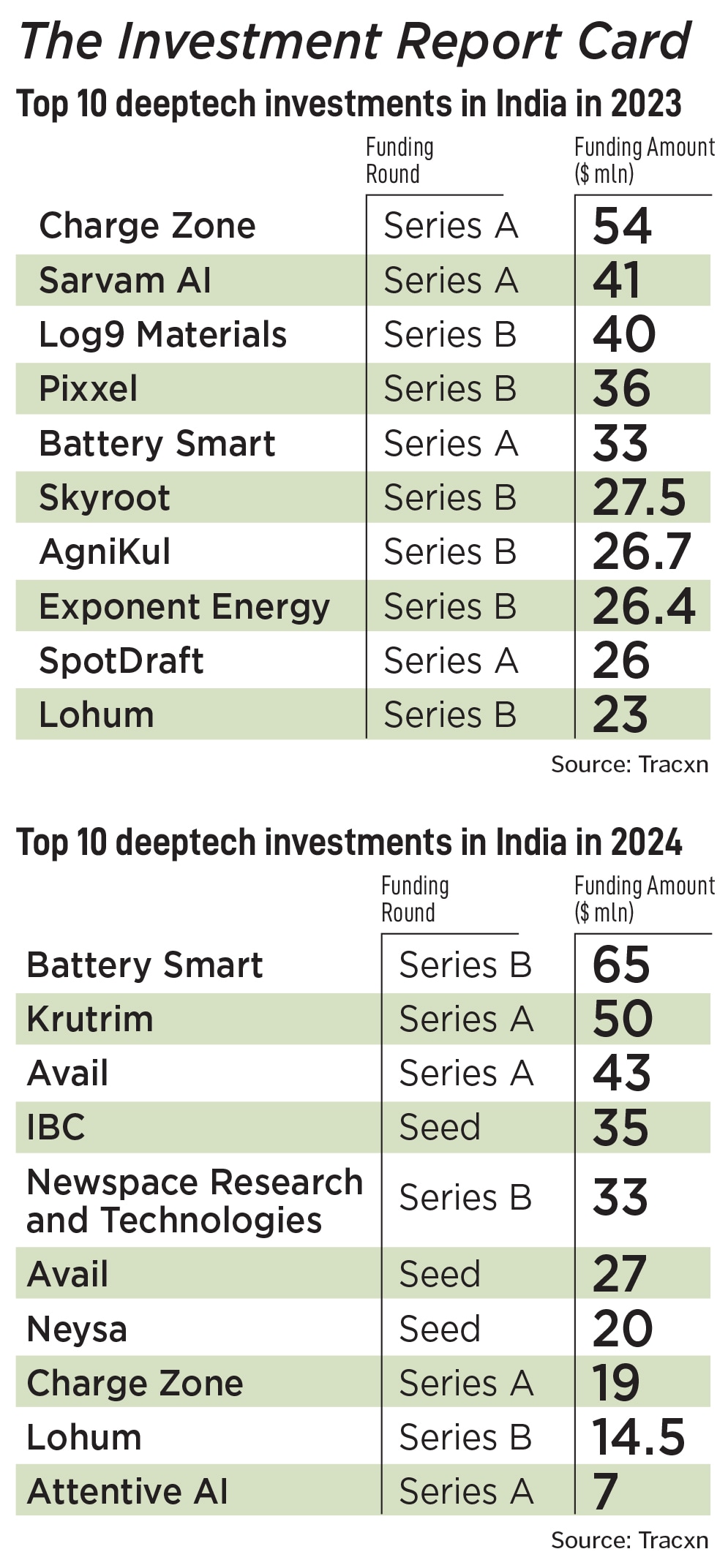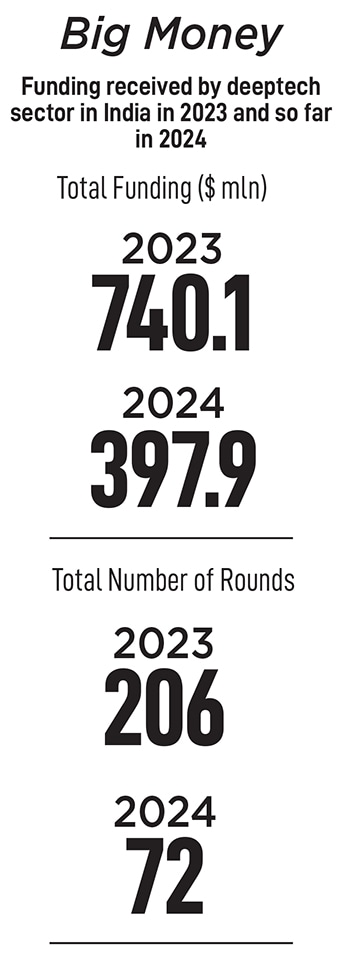
India's deeptech sector is on the cusp of commercialisation
India's deeptech sector is about a decade away from becoming mainstream, but several promising startups, from robotics to space exploration to biotech, are ready to do business
 A collective effort to make it easier for businesses to support local deeptech startups will also contribute to the development of the ecosystem.
Image: Freepik.com
A collective effort to make it easier for businesses to support local deeptech startups will also contribute to the development of the ecosystem.
Image: Freepik.com
Let’s start with a quick update on some of the deeptech startups we featured in our special issue on the sector last year. In the last six months, at Ati Motors, which makes autonomous mobile robots for industrial applications, customers have begun to use the Bengaluru startup’s products in every market the venture targeted, including the US, India and Southeast Asia.
“The US traction has especially been very good and we have succeeded in putting a team in place with an office in Detroit,” CEO Saurabh Chandra says. The number of Ati’s robots deployed has hit the 100-unit mark.
CynLr, another industrial robotics company out of Bengaluru, is running commercial pilots for its “general-purpose visual robotics solution”, called CyRo, at General Motors and Denso.
“A pipeline of automotive original equipment manufacturers and Tier I vendors in the US, EU and Japan are evaluating the same for adoption,” co-founder and CEO Nikhil Ramaswamy says. CynLr has also set up a subsidiary in Switzerland and expects to open an R&D lab there by September, and another in Michigan, US, by December.
Eyestem, which is developing a treatment for the dry version of a condition called age-related macular degeneration, has been given a regulatory go-ahead for human trials. The life sciences startup, incubated at the Centre for Cellular and Molecular Platforms (C-CAMP), has teamed up with the LV Prasad Eye Institute to test its proprietary product, named Eyecyte RPE, to see if it can help replace lost or damaged retinal pigment epithelium cells.
(This story appears in the 12 July, 2024 issue of Forbes India. To visit our Archives, click here.)




 “We want to reach a much larger patient base than most cell and gene therapies worldwide,” Jogin Desai, founder and CEO of Eyestem, says. The aim is to use this cell therapy platform to develop products for large-scale availability, he says.
“We want to reach a much larger patient base than most cell and gene therapies worldwide,” Jogin Desai, founder and CEO of Eyestem, says. The aim is to use this cell therapy platform to develop products for large-scale availability, he says. Some of these institutions include the IIT-Madras Research Park, IIT-Bombay’s Society for Innovation and Entrepreneurship, the Foundation for Science Innovation and Development (formerly the Society for Innovation and Development) at the Indian Institute of Science, the Venture Center in Pune, C-CAMP in Bengaluru, and in general the work done by the Department of Biotechnology’s BIRAC (Biotechnology Industry Research Assistance Council).
Some of these institutions include the IIT-Madras Research Park, IIT-Bombay’s Society for Innovation and Entrepreneurship, the Foundation for Science Innovation and Development (formerly the Society for Innovation and Development) at the Indian Institute of Science, the Venture Center in Pune, C-CAMP in Bengaluru, and in general the work done by the Department of Biotechnology’s BIRAC (Biotechnology Industry Research Assistance Council).













